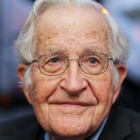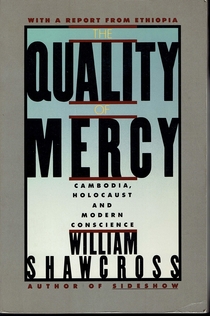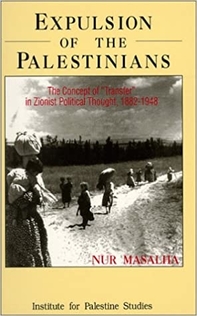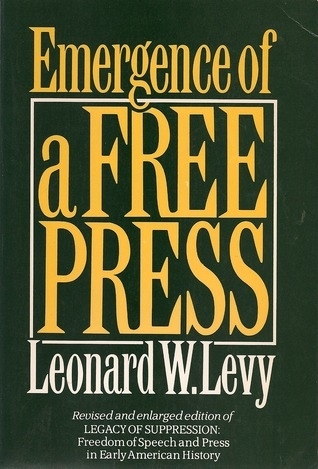
Noam Chomsky Books - 100 Recommended Picks
Noam Chomsky
There is a famous Noam Chomsky book list consisting of top 100 books Noam Chomsky ever recommended and mentioned. It is the full Noam Chomsky book list.
Noam Chomsky is a highly-regarded linguistics professor, one of the most prominent minds to live in our time.
Not only he is active in terms of his academic influence, but he is also a political activist who never stops before telling the truth.
Noam Chomsky is a genuine intellectual. He revolutionized linguistics with his non-empiricist language theory, and after that, he continued expressing his talents in the field of social and political studies.
He is an extremely well-read person, so Noam Chomsky book recommendations are valuable for those who seek to enrich their library with books on serious and timeless topics.
He is also known for his sharp ideas on society, politics, and his deeply philosophic approach to any books and discussions.
Justice and truth are the main concepts that guide Noam Chomsky. You will notice it in the Noam Chomsky book list: the pieces show various opinions on the same topic.
He is not afraid to defend the truth. Noam Chomsky has spoken a lot throughout his life defending justice and uncovering fraud or corruption schemes.
Professor Chomsky is a man that stands behind his ideas no matter what political powers are dominant at that time.
Noam Chomsky book recommendations are perfect for those looking to deeply dive into the political, linguistic, or sociological matters and observe the subject from multiple standpoints.
Noam Chomsky book list is a thoroughly curated selection of books that encourage and develop critical thinking.
So, take a glimpse to the library of Noam Chomsky - an unparalleled author and scientist.
See all
0
likes
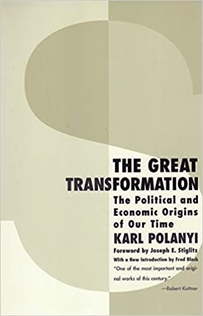
The Great Transformation
In this classic work of economic history and social theory, Karl Polanyi analyzes the economic and social changes brought about by the "great transformation" of the Industrial Revolution. His analysis explains not only the deficiencies of the self-regulating market, but the potentially dire social consequences of untempered market capitalism. New introductory material reveals the renewed importance of Polanyi's seminal analysis in an era of globalization and free trade.
See all
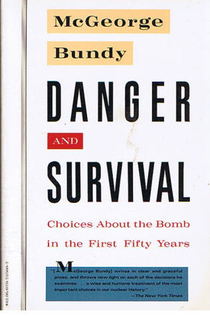
Danger and Survival
Bundy, a former special assistant for national security under Presidents Kennedy and Johnson, explores the history of the nuclear bomb.
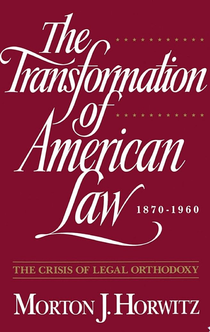
The Transformation of American Law, 1870-1960
When the first volume of Morton Horwitz's monumental history of American law appeared in 1977, it was universally acclaimed as one of the most significant works ever published in American legal history. The New Republic called it an "extremely valuable book." Library Journal praised it as "brilliant" and "convincing." And Eric Foner, in The New York Review of Books, wrote that "the issues it raises are indispensable for understanding nineteenth-century America." It won the coveted Bancroft Prize in American History and has since become the standard source on American law for the period between 1780 and 1860. Now, Horwitz presents The Transformation of American Law, 1870 to 1960, the long-awaited sequel that brings his sweeping history to completion. In his pathbreaking first volume, Horwitz showed how economic conflicts helped transform law in antebellum America. Here, Horwitz picks up where he left off, tracing the struggle in American law between the entrenched legal orthodoxy and the Progressive movement, which arose in response to ever-increasing social and economic inequality. Horwitz introduces us to the people and events that fueled this contest between the Old Order and the New. We sit in on Lochner v. New York in 1905--where the new thinkers sought to undermine orthodox claims for the autonomy of law--and watch as Progressive thought first crystallized. We meet Oliver Wendell Holmes, Jr. and recognize the influence of his incisive ideas on the transformation of law in America. We witness the culmination of the Progressive challenge to orthodoxy with the emergence of Legal Realism in the 1920s and '30s, a movement closely allied with other intellectual trends of the day. And as postwar events unfold--the rise of totalitarianism abroad, the McCarthyism rampant in our own country, the astonishingly hostile academic reaction to Brown v. Board of Education--we come to understand that, rather than self-destructing as some historians have asserted, the Progressive movement was alive and well and forming the roots of the legal debates that still confront us today. The Progressive legacy that this volume brings to life is an enduring one, one which continues to speak to us eloquently across nearly a century of American life. In telling its story, Horwitz strikes a balance between a traditional interpretation of history on the one hand, and an approach informed by the latest historical theory on the other. Indeed, Horwitz's rich view of American history--as seen from a variety of perspectives--is undertaken in the same spirit as the Progressive attacks on an orthodoxy that believed law an objective, neutral entity. The Transformation of American Law is a book certain to revise past thinking on the origins and evolution of law in our country. For anyone hoping to understand the structure of American law--or of America itself--this volume is indispensable.
See all

Selling Free Enterprise
The post-World War II years in the United States were marked by the business community's efforts to discredit New Deal liberalism and undermine the power and legitimacy of organized labor. In Selling Free Enterprise, Elizabeth Fones-Wolf describes how conservative business leaders strove to reorient workers away from their loyalties to organized labor and government, teaching that prosperity could be achieved through reliance on individual initiative, increased productivity, and the protection of personal liberty. Based on research in a wide variety of business and labor sources, this detailed account shows how business permeated every aspect of American life, including factories, schools, churches, and community institutions.
See all
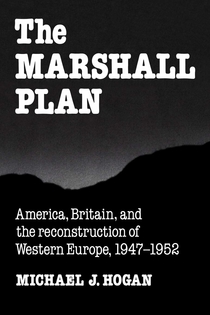
The Marshall Plan
Michael Hogan shows how The Marshall Plan was more than an effort to put American aid behind the economic reconstruction of Europe. American officials hoped to refashion Western Europe into a smaller version of the integrated single-market and mixed capitalist economy that existed in the United States. Professor Hogan's emphasis on integration is part of a major reinterpretation that sees the Marshall Plan as an extension of American domestic and foreign-policy developments stretching back through the interwar period to the Progressive Era. Michael Hogan is Professor of History at Ohio State University and editor of Diplomatic History.
See all
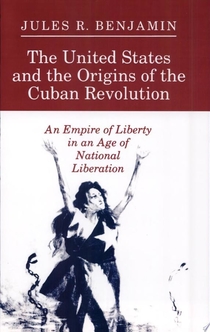
The United States and the Origins of the Cuban Revolution
Jules Benjamin argues convincingly that modern conflicts between Cuba and the United States stem from a long history of U.S. hegemony and Cuban resistance. He shows what difficulties the smaller country encountered because of U.S. efforts first to make it part of an "empire of liberty" and later to dominate it by economic methods, and he analyzes the kind of misreading of ardent nationalism that continues to plague U.S. policymaking.
See all

The New Intifada
Frustrated by the failure of the peace process to end the occupation, and outraged by Ariel Sharon's invasion of the Haram Al-Sharif in East Jerusalem, the Palestinian population of Israel and the Occupied Territories rose up in September 2000. The second Intifada has raged ever since. Here, a group of experts, many of them directly involved in the conflict, trace the course of the uprising, its consequences for the Palestinian people and the Israeli state, and its likely impact on the future of peace in the Middle East. The scholar Edward Said picks apart the fraudulence of the vaunted peace process; Noam Chomsky reveals how the US government has helped prevent a just resolution of the conflict; Amira Hass, Palestinian affairs correspondent for Ha'aretz, discusses the duplicitous methods of the Israeli media and government; Robert Fisk describes the genocidal legacy of Ariel Sharon and the Israeli occupation of Lebanon; and prizewinning novelist Ahdaf Soueif reports on her visit to Jerusalem at the height of the Intifada. Other contributors provide first-hand reports from the refugee camps and Palestinian schools, and from the front line of the Intifada. Photographs provide searing testimony to the costs and the indefatigability of the resistance. Maps illustrate the stranglehold Israel exerts over the Palestinian territories. The case for an international grassroots movement for Palestinian rights is made with persuasive clarity. The resonance of The New Intifada will help to build a platform for such a campaign and educate those who can be won to it. 30 b/w photographs. Contributors: Ali Abunimah, Ghassan Andoni, Omar Barghouti, Nidal Barham, Azmi Bishara, Noam Chomsky, Robert Fisk, Muna Hamzeh, Hussein Ibish, Jan de Jong, Jennifer Loewenstein, Nancy Murray, Allegra Pacheco, Mouin Rabbani, Glenn Robinson, Sara Roy, Edward Said, Salman Abu Sitta, Gita Svirsky, Ahdaf Soueif, Mayssoun Sukarieh, Alison Weir.
See all

Freedom of Speech
Although freedom of speech is regarded as a bedrock principle of American constitutionalism, the Supreme Court did not recognize it as a fundamental right worthy of strong constitutional protection until the middle of the 20th century. This work focuses on the core doctrines that constitute free speech jurisprudence. It provides a historical evolution of the doctrine and examines the key Supreme Court decisions affecting it.This volume gives readers an analytical framework for understanding free speech jurisprudence. It takes a fresh approach to free speech methodology by breaking it into two accessible parts: substantive doctrines and procedural doctrines. This work includes informative background chapters on the history and theory of free expression. It also looks at the Supreme Court's struggle with subversive advocacy and its importance in protecting free speech.
See all

The Price of Power
Price of Power examines Henry Kissinger’s influence on the development of the foreign policy of the United States during the presidency of Richard Nixon.

Just the Facts: A Civilian's Guide to U.S. Defense and Security Assistance to Latin America and the Caribbean: Olson, Joy, Isacson, Adam
Just the Facts: A Civilian's Guide to U.S. Defense and Security Assistance to Latin America and the Caribbean [Olson, Joy, Isacson, Adam] on Amazon.com. *FREE* shipping on qualifying offers. Just the Facts: A Civilian's Guide to U.S. Defense and Security Assistance to Latin America and the Caribbean
See all
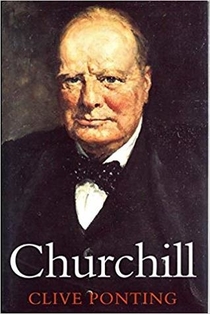
Churchill
This revisionist, unauthorized biography of Winston Churchill, challenges the myth that has grown up around the war leader, much of it propagated by Churchill's own writings, and draws on recently-released material to paint a picture of a politician whose views were sometimes extreme and repugnant, who was disliked and distrusted by his colleagues, and whose private life was affected by his taste for money and alcohol.
See all

John Quincy Adams and American Global Empire
This is the story of a man, a treaty, and a nation. The man was John Quincy Adams, regarded by most historians as America's greatest secretary of state. The treaty was the Transcontinental Treaty of 1819, of which Adams was the architect. It acquired Florida for the young United States, secured a western boundary extending to the Pacific, and bolstered the nation's position internationally. As William Weeks persuasively argues, the document also represented the first determined step in the creation of an American global empire.Weeks follows the course of the often labyrinthine negotiations by which Adams wrested the treaty from a recalcitrant Spain. The task required all of Adams's skill in diplomacy, for he faced a tangled skein of domestic and international controversies when he became secretary of state in 1817. The final document provided the United States commercial access to the Orient--a major objective of the Monroe administration that paved the way for the Monroe Doctrine of 1823.Adams, the son of a president and later himself president, saw himself as destined to play a crucial role in the growth and development of the United States. In this he succeeded. Yet his legendary statecraft proved bittersweet. Adams came to repudiate the slave society whose interests he had served by acquiring Florida, he was disgusted by the rapacity of the Jacksonians, and he experienced profound guilt over his own moral transgressions while secretary of state. In the end, Adams understood that great virtue cannot coexist with great power.Weeks's book, drawn in part from articles that won the Stuart Bernath Prize, makes a lasting contribution to our understanding of American foreign policy and adds significantly to our picture of one of the nation's most important statesmen.
See all

The United States and Fascist Italy, 1922-1940
A comprehensive analysis of American foreign policy and Mussolini's Italy. Schmitz argues that the U.S. desire for order, interest in Open Door trade, and concern about left-wing revolution led American policymakers to welcome Mussolini's coming to power and to support fascism in Italy for most of the interwar period.Originally published in 1988.A UNC Press Enduring Edition -- UNC Press Enduring Editions use the latest in digital technology to make available again books from our distinguished backlist that were previously out of print. These editions are published unaltered from the original, and are presented in affordable paperback formats, bringing readers both historical and cultural value.
See all
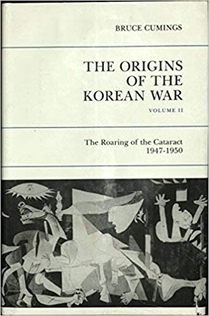
The Origins of the Korean War: The roaring of the cataract, 1947-1950
Distributed for Yuksabipyungsa PressIn Volume II of The Origins of the Korean War, Cumings examines the internal political-economic development of the two Korean states and the consequences, for Korea, of Cold War rivalry between the United States and the Soviet Union. He investigates the intense border fighting and internal political instability that preceded the Northern invasion and challenges the notion of sudden Soviet-sponsored intervention. He discusses, among other topics, the containment doctrine as applied to South Korea and the subsequent adoption by the United States of a "rollback" policy aimed at eliminating communism in North Korea.
See all

The CIA and American Democracy
This third edition of Rhodri Jeffreys-Jones's engrossing history of the Central Intelligence Agency includes a new prologue that discusses the history of the CIA since the end of the Cold War, focusing in particular on the intelligence dimensions of the terrorist attacks on 9/11.Praise for the earlier editions:"I have read many books on the CIA, but none more searching and still dispassionate. Nor would I have believed that a book of such towering scholarship could still be so lucid and exciting to read."--Daniel Schorr"This is one of the best short histories of the CIA in print, up-to-date and based on a wide range of sources."--Walter Laqueur"Judicious and reasonable. . . . A sophisticated study that should challenge us to take a more serious view about how our democracy formulates its foreign policy."--David P. Calleo, New York Times Book ReviewA brief, yet subtle and penetrating, account of the Central Intelligence Agency."--Leonard Bushkoff, Christian Science Monitor"Subtle and crisply written. . . . A book remarkable for its clarity and lack of bias."--William W. Powers, Jr., International Herald Tribune, Paris
See all
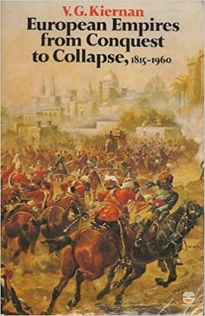
European Empires from Conquest to Collapse, 1815-1960
An extraordinarily wide-ranging book which brings within a single view the wars which created Europe's empires. Beginning with the post-Napoleonic era, it presents all the major episodes of an often dramatic story in which the military agents of European imperialism met the peoples of the rest of the world in armed conflict. Brilliant sketches of far-off battles and campaigns are interwoven with the changing balance of economic and political power, until the colonial liberation movements turned the tables in the aftermath of the Second World War.
See all

Politicide
Ariel Sharon was one of the most experienced, shrewd and frightening leaders of the new millennium. Despite being found both directly and indirectly responsible for acts considered war crimes under international law, he became Prime Minister of Israel, a political victory he won by provoking the Palestinians into a new uprising, the second intifada. From the beginning of his career Sharon was regarded as the most brutal, deceitful and unrestrained of all the Israeli generals and politicians. A man of monstrous vision, his attempts to destroy the Palestinian people have included the proposal to make Jordan the Palestinian state and the now infamous invasion of Lebanon in 1982, which resulted in the Sabra and Shatila massacre.Baruch Kimmerling's new book describes Sharon's quest to reshape the whole geopolitical landscape of the Middle East. He describes how Sharon is committed to politicide, the destruction of the Palestinian political identity, and how won the support of powerful elements within Israeli society and the American administration in order to achieve this. Kimmerling exposes the brutality of Sharon and his junta's 'solutions', and constructs a devastating indictment of a man whose cruelty and ruthlessness have resulted in widespread and indiscriminate slaughter.
See all

The American Occupation of Japan
In this novel and intriguing book, Michael Schaller traces the origins of the Cold War in Asia to the postwar occupation of Japan by U.S. troops. Determined to secure Japan as a bulwark against both Soviet expansion and Asian revolution, the U.S. instituted ambitious social and economic reforms under the direction of the flamboyant Occupation Commander, General Douglas MacArthur. MacArthur was later denounced by the Truman Administration as a "bunko artist" who had wrecked Japan's economy and opened it to Communist influence, and power was shifted to Japan's old elite. Cut off from its former trading partners, which were now all Communist-controlled, Japan, with U.S. backing, turned its attention to the rich but unstable Southeast Asian states. The stage was thus set for U.S. intervention in China, Korea, and Vietnam.
See all

Facing West
American expansion, says Richard Drinnon, is characterized by repression and racism. In his reinterpretation of "winning" the West, Drinnon links racism with colonialism and traces this interrelationship from the Pequot War in New England, through American expansion westward to the Pacific, and beyond to the Phillippines and Vietnam. He cites parrallels between the slaughter of bison on the Great Plains and the defoliation of Vietnam and notes similarities in the language of aggression used in the American West, the Philippines, and Southeast Asia.
See all

In Retrospect
#1 NATIONAL BESTSELLER. The definitive insider's account of American policy making in Vietnam."Can anyone remember a public official with the courage to confess error and explain where he and his country went wrong? This is what Robert McNamara does in this brave, honest, honorable, and altogether compelling book."—Arthur Schlesinger, Jr.Written twenty years after the end of the Vietnam War, former Secretary of Defense Robert McNamara's controversial memoir answers the lingering questions that surround this disastrous episode in American history.With unprecedented candor and drawing on a wealth of newly declassified documents, McNamara reveals the fatal misassumptions behind our involvement in Vietnam. Keenly observed and dramatically written, In Retrospect possesses the urgency and poignancy that mark the very best histories—and the unsparing candor that is the trademark of the greatest personal memoirs.Includes a preface written by McNamara for the paperback edition.
See all

Culture, Inc
Most Americans take for granted that they live in an open society with a free market of ideas. But as Herbert Schiller reveals in Culture, Inc., the corporate arm has reached into every corner of daily life, and from the shopping mall to the art gallery, big-business influence has brought about some frightening changes in American culture. Examining the effects of fifty years worth of corporate growth on American culture, Schiller argues that corporate control over such arenas of culture as museums, theaters, performing arts centers, and public broadcasting stations has resulted in a broad manipulation of consciousness as well as an insidious form of censorship. A disturbing but enlightening picture of corporate America, Culture, Inc. exposes the agenda and methods of the corporate cultural takeover, reveals the growing threat to free access to information at home and abroad, shows how independent channels of expression have been greatly restricted, and explains how the few keep managing to benefit from the many.
See all
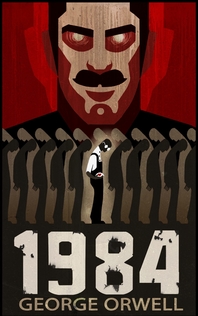
1984
Первые полвека после публикации антиутопия Оруэлла «1984»воспринималась как злая сатира на коммунистические режимы.Но, увы, пророческие детали мира «1984» всё больше и больше становятся реальностью современного декоммунизированного мира.Фантастические реалии, придуманные Джорджем Оруэллом для Британии 1984 года, давно вошли в культурный код современного человека, зависимого от глобальных корпораций, социальных сетей и медиа: «Старший Брат смотрит на тебя», «мыслепреступление», «новояз», «свобода — это рабство». Например, житель современного крупного города лишен приватности, несколько раз за день попадая в поле зрения камер видеонаблюдения: так, в Лондоне их более 600 тысяч, по одной на 14 жителей; в среднем за день каждого лондонца фиксируют около 300 раз.Роман «1984» наряду с такими произведениями, как «Мы» Евгения Замятина (1920), «О дивный новый мир» Олдоса Хаксли (1932) и «451 градус по Фаренгейту» Рэя Брэдбери (1953), считается культовым образцом антиутопии.
See all
